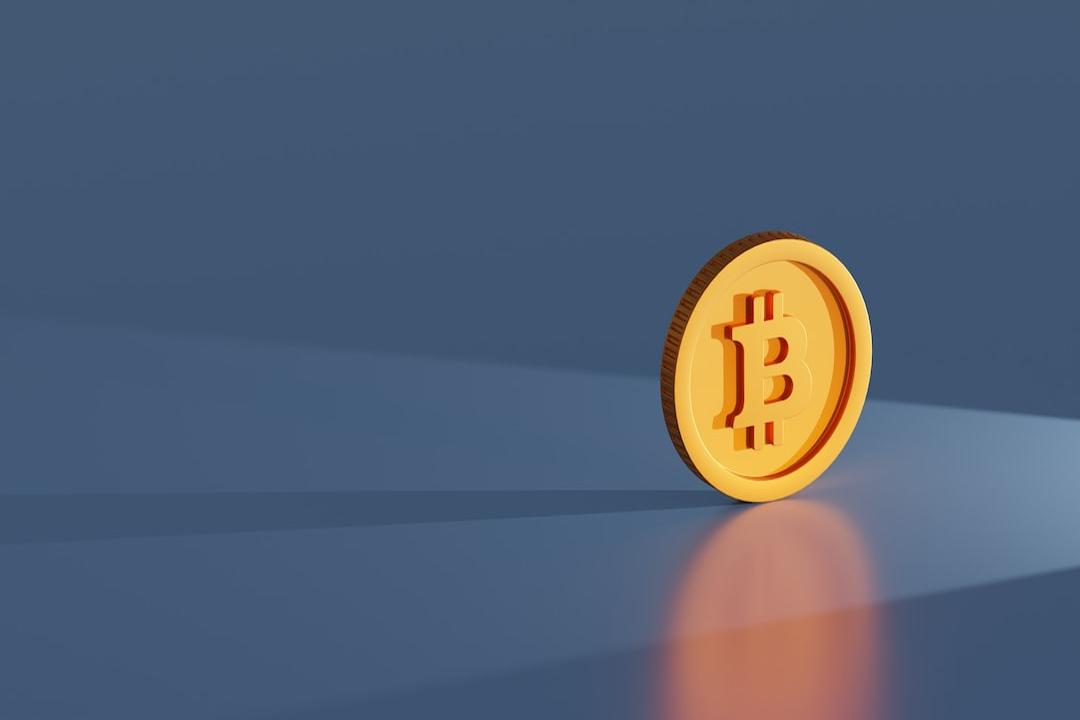Vitalik’s Manifesto of Maturity: A Reflection and Contemplation on Turning 30 “The End of My Childhood”
Ethereum co-founder Vitalik Buterin has published a lengthy article titled “My Childhood is Over” reflecting on his experiences and insights as he turns 30. The following is a summary of his article, which we believe contains his most important and worth-reading thoughts.
Table of contents:
Toggle
No longer a prodigy, should pass the baton to younger people
Pursuit and reflection on life
The Ukrainian war, FTX collapse, and meeting with Putin as major turning points in life
The crypto field, which is driven by “money,” should not overlook broader developments
The collective life of the crypto community: progress comes from cooperation and respect
Characteristics of the global crypto community in Vitalik’s eyes: Taiwan is also part of it
Vitalik’s four personal reflections
Vitalik’s insights as he surpasses the age limit
Vitalik Buterin reflects on his experiences at the Hackathon, visiting the hacker house, and participating in the Zuzalu event in Montenegro. He emphasizes that individuals ten years younger than him are taking leadership roles in various projects, including crypto audits and Ethereum layer two scaling. He recalls visiting a hacker house in South Korea where he felt noticeably older than the other participants, signaling the transition from being a celebrated young prodigy, similar to figures like Mark Zuckerberg.
This reflection made him realize that he has transitioned from being a pioneering young person to a new role, and it’s time to pass the torch to the next generation.
Vitalik Buterin discusses his stance on life extension and the philosophical questions related to the meaning of life and its finiteness. Initially, he rejected the idea that scarcity of life increases its value and opposed the view that extending life could bring weariness beyond the finality of death.
He states that when viable alternatives are available, people are likely to reject biological death and suffering.
Over time, Vitalik’s perspective evolved to recognize that all experiences in life, such as friendships, personal identities, and social norms, are temporary regardless of the overall duration of life. He reflects on the transition of his own identity, from focusing on mathematics and economics to dealing with the complexity of governance and the intangible aspects of human coordination and culture. Vitalik points out his shift in intellectual pursuits, from seeking the optimal mathematical solution to using mathematics as a tool for rough predictions and understanding social dynamics.
He also acknowledges the role played by modern artificial intelligence (AI) in providing new ways to engage in nuanced human interactions, making abstract concepts like “atmosphere” more concrete and analyzable. Vitalik concludes by emphasizing the ongoing nature of change, indicating that despite the actual length, the finite nature and renewability of life still exist. He shares his personal choice of embracing change and renewal through a digital nomadic lifestyle, proposing unconventional paths in search of the meaning and diversity of life.
Vitalik Buterin shares a profound personal experience recounting how two major events deeply influenced his perspective and actions. The first event he recalls is watching the beginning of the Mariupol conflict from a hotel room in Denver on February 23, 2022. It was an experience filled with anxiety and fear that he shared remotely with his father. This prompted him to publicly declare his position on the issue and verify the legitimacy of the Ukrainian government’s request for cryptocurrency donations, addressing concerns of fraud alongside the crypto community.
The second event involved witnessing the aftermath of the SBF and FTX incident, which shook the crypto world and made Vitalik realize the transience of leaders and mentors within this field. This realization led him to reflect on his own identity and the roles he assumes or is assigned within the crypto community and a broader scope.
Vitalik delves into his personal journey, highlighting his transition from an academically excellent student to becoming a significant figure in the crypto field. This path was not driven by a desire for courage or creativity but emerged due to circumstances and opportunities. He narrates his decision to drop out of college and fully immerse himself in the crypto world, influenced by social recognition and encouragement rather than a deliberate, conscious choice.
For Vitalik, a significant turning point came from his interactions, including meeting with Putin, which made him realize that he inadvertently provided legitimacy to figures he later questioned. This led him to commit to making more conscious and proactive decisions, carefully choosing which projects and interactions to engage in, aiming to prevent the field from being dominated by opportunistic interests.
Vitalik’s story emphasizes the importance of personal responsibility and conscious action when dealing with global events and the complexity of the crypto ecosystem, highlighting his evolution from a reactive participant to a more proactive and discerning individual.
Vitalik Buterin shifts to another topic, discussing the evolving challenges and opportunities within the crypto field, likening them to intellectual stimulation in solving mathematical puzzles rather than physical pain. He reflects on the changing role of economics, the importance of social coordination, and the increasing complexity of interactions between large social entities such as governments and corporations. Vitalik observes that although the original intention of Bitcoin and the crypto movement was to challenge and potentially replace traditional financial institutions and fiat currencies, public discourse has shifted away from these topics.
He acknowledges a decreased focus on finance and banking in broader social concerns, and proposes two responses for the crypto ecosystem: first, reaffirming the relevance of finance, particularly in serving underserved populations; second, expanding the scope of cryptographic technology beyond finance towards establishing a more comprehensive, decentralized, and democratized technological infrastructure.
Vitalik emphasizes the unique position of the crypto industry, its global decentralized nature, and the potential for non-Western developers to address specific needs of low-income countries. He criticizes the Silicon Valley-centric perspective and advocates for a broader recognition of the global challenges related to financial inclusion.
Furthermore, he outlines a vision for a comprehensive decentralized technology stack that operates independently of the centralized model of Silicon Valley, covering various aspects from banking to governance. This vision includes replacing traditional financial systems with blockchain-based solutions, creating decentralized alternatives for online identity verification, communication, and content distribution, and enhancing democratic governance through technology to make decision-making more inclusive and representative.
Vitalik concludes by emphasizing the potential of zero-knowledge proofs in balancing privacy concerns with the need for trust and veracity, suggesting that the crypto field can be a better technology beyond just financial technology, addressing the demands and concerns of the 21st century with a broader narrative. This approach not only re-emphasizes the importance of finance but positions crypto as a foundational element in a more democratic, decentralized, and privacy-respecting digital infrastructure.
Vitalik Buterin explores the complexity of motivations within the crypto field and challenges the idea that financial incentives are the sole driving force, likening it to intellectual stimulation rather than physical pain.The Perspective of Being the Sole Driving Force. He pointed out that the actions within the crypto community often seem to contradict pure financial motives, such as emphasizing decentralization and promoting the effectiveness of mining or coin pool diversification despite obvious financial disadvantages.
Vitalik proposed a conceptual framework to better understand this ecosystem and identified four major groups: token holders and DeFi users, intellectuals, builders, and pragmatic users. He stated that these groups have a symbiotic relationship and each contributes necessary elements to the success of the ecosystem. Token holders and DeFi users provide crucial funding, intellectuals provide innovative ideas, builders transform these ideas into practical applications, and pragmatic users are the ultimate beneficiaries of these developments.


The Various Lives of the Crypto Community
However, Vitalik also acknowledged that each group can exhibit “faulty” behavior that can harm the health of the ecosystem, such as adopting extractive applications, excessive focus on theoretical intellectuals, or users who prefer centralized solutions for convenience. He reflected on the tendency of these groups in history to overlook each other’s contributions and emphasized the importance of increasing mutual understanding and cooperation potential. By recognizing their interdependence, limiting excessive behavior, and acknowledging common goals, Vitalik believes that these groups can promote a more cohesive and efficient crypto space.
This vision of the crypto community emphasizes the importance of balancing diverse motivations and the potential for collective progress through collaboration and respect for different perspectives. Vitalik calls for a “peaceful form” of interaction within the crypto community and with neighboring communities, suggesting that closer alignment of values and goals is both possible and desirable.
Vitalik Buterin reflects on the global nature of the crypto community and its interaction with different cultures and subcultures, emphasizing that this has provided him with unique insights and experiences. His travels have exposed him to thriving crypto scenes in various regions, each with its unique contributions and challenges.
In 2014, during his visit to China, he witnessed a vibrant ecosystem rapidly expanding its business from exchanges to mining farms, demonstrating the country’s early enthusiasm for crypto technology. Europe, especially Berlin, played a crucial role in the development of Ethereum, fostering a culture of open-source innovation and exploring non-financial applications of blockchain technology. The San Francisco Bay Area in the United States played a key role in the early adoption and ideological shaping of the crypto field with its fusion of rationalism, effective altruism, and transhumanism.
Vitalik noted significant changes over time, such as China’s regulatory crackdown leading to a shift towards Singapore, internal divisions within the Silicon Valley tech community, and the evolution of geographic diversity among Ethereum contributors. He highlighted Taiwan’s self-organizing ability and enthusiasm for embracing new ideas such as digital democracy, as well as Argentina’s practical and idealistic approach to adopting crypto to address current financial challenges.


Vitalik shares a photo from the web3 for all reading group in Taiwan
He emphasized the importance of local context in shaping the adoption and development of crypto technology, from the philosophical inclinations of Silicon Valley to the economic pressures driving adoption in Argentina. Vitalik’s encounters illustrate a range of reactions sparked by the crypto movement, from theoretical exploration to practical applications, reflecting the diverse needs and aspirations of the global community.
Vitalik argues that this diversity enriches the crypto ecosystem, fostering the creation and nurturing of new cultures and subcultures. His experiences demonstrate the potential of the internet nation movement to actively cultivate and expand these communities, highlighting the dynamic interplay between technology, culture, and community in the global crypto landscape.
Vitalik Buterin shared personal lessons he has learned on his journey, touching on topics such as self-awareness, ethics, and personal development:
1. Transcending Greedy Selfishness: Vitalik challenges the view that greed for money and power is the root of evil, recognizing that selfishness can manifest in various forms, including cowardice, laziness, and resentment. He reflects on his own growth process, which emphasized avoiding greedy money and power as measures of goodness but later realized that other forms of greed, such as a desire for social status, are equally harmful.
2. Authentic Preferences: He opposes the necessity of having scientific reasons to justify personal preferences and criticizes the utilitarian view that may compel individuals to rationalize their choices for the benefit of overall human prosperity. This realization emphasizes the importance of accepting personal preferences and recognizing that incompatibility does not necessarily make someone a bad person.
3. The Importance of Habits: Vitalik emphasizes the importance of sustainable habits over ambitious but unachievable goals. He shares his approach of maintaining achievable personal goals, such as regular running, despite the limitations of his nomadic digital lifestyle. The effectiveness of gamification strategies used by Duolingo illustrates the value of consistency and the challenge of making positive decisions that lead to long-term behavior change.
4. Limitations of Learning from Others: Finally, Vitalik acknowledges the limitations of learning solely from others’ experiences, especially in a rapidly changing world where lessons can quickly become outdated. He emphasizes the irreplaceable value of personal experiences in navigating the complexity of life.
These reflections offer insights into Vitalik’s philosophical growth and his approach to facing life’s challenges, highlighting the importance of nuanced understanding of ethics, acceptance of personal and others’ limitations, and practical strategies for personal development in a constantly evolving environment.
Vitalik Buterin reflects on the transient nature of social constructs such as communities, ideologies, scenes, nations, companies, families, and relationships, emphasizing that they are all human creations. He acknowledges that while some structures may appear eternal, their existence and persistence rely on human effort and storytelling. Vitalik points out that everything in the social world is finite, not only in its physical or structural existence but also in how individuals perceive and experience them. As these entities inevitably fade away with time, people have a responsibility to innovate and create new entities to replace them.
For Vitalik, 2023 is a period of witnessing the disappearance of many things, both significant and insignificant, highlighting the rapid changes in the world, the shifting frameworks used to understand these changes, and his evolving role in this dynamism. He confronts the concept of death, not only in the literal sense but as a metaphor for the endings of various social structures, acknowledging it as an inevitable aspect of existence. However, he also sees opportunities for birth and rebirth, emphasizing the importance of continued action and creation in building new communities, ideologies, and structures.
Vitalik’s reflections encapsulate a broader philosophical acceptance of change and the cyclical nature of life and death in social structures. It serves as a call to action, encouraging individuals to actively participate in shaping the future, recognizing the role each person plays in the creation, maintenance, and renewal of the social world’s sustainable cycles.
Vitalik Buterin


Further Reading
Vitalik Buterin, Founder of Ethereum, on the Prospects and Challenges of Integrating AI and Blockchain
Podcast | Kuomintang legislator Geng Ru-Jun’s conversation with Ethereum founder Vitalik on Taiwan’s election results and democratic development
